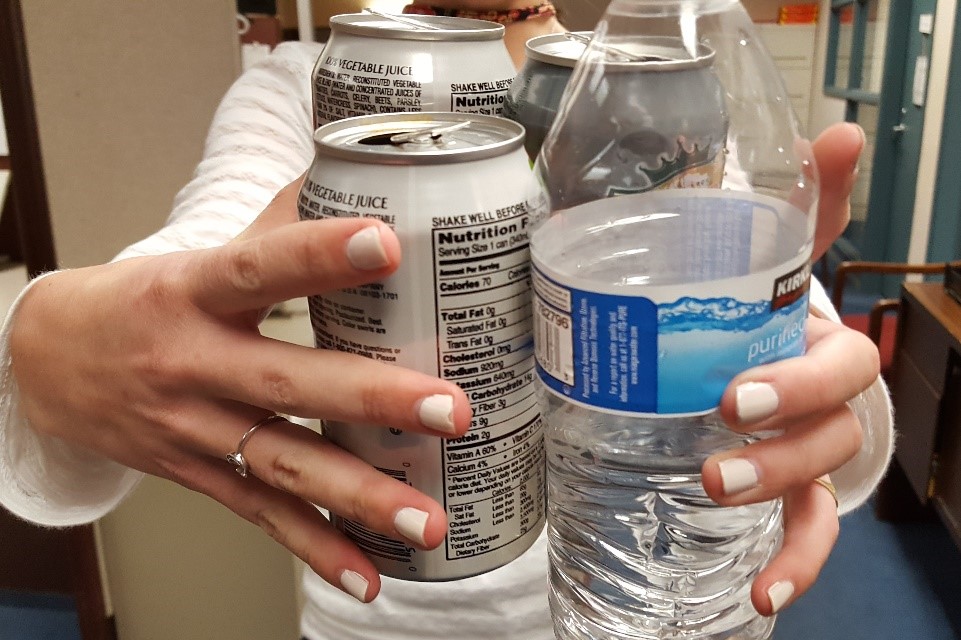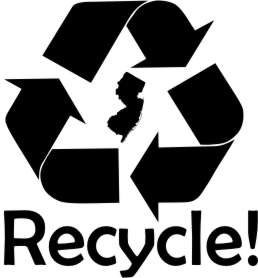|
FOR IMMEDIATE RELEASE |
Contact: Caryn Shinske (609) 984-1795 |
|
DEP LAUNCHES SOCIAL MEDIA CAMPAIGN TO REMIND PUBLIC ABOUT IMPORTANCE OF (19/P051) TRENTON – The Department of Environmental Protection is encouraging local governments and other organizations to use social media to remind the public about the importance of keeping New Jersey’s recycling stream free of nonrecyclable items.
“This social media campaign is another valuable tool that county and municipal recycling programs can use to eliminate confusion about what can and cannot be recycled in curbside programs,” DEP Commissioner Catherine R. McCabe said. “Properly recycling materials is critical to keeping our environment clean, protecting public health and reducing greenhouse gas emissions that contribute to climate change.” Recycling contamination is anything that finds its way into a recycling bin or cart that does not belong there. Some examples of recycling contaminants are plastic bags, plastic syringes, auto parts, garden hoses, bowling balls, Styrofoam cups and trash. Contaminants in recycling have several adverse effects on the recycling stream. They jam up processing equipment at recycling centers, which in turn increases costs associated with recycling, and can pose health and safety threats to recycling center workers.
As a result of these challenges, the DEP urges all residents to participate in their local recycling program and help keep unacceptable materials out of curbside and workplace recycling bins. “For recycling to work, we need to keep our recycling mix clean and free of such non-acceptable and problematic items,” Commissioner McCabe added. “It is important to remember that recyclable materials are not trash, but rather valuable raw materials used to make new products.” Recycling also helps conserve resources, reduces waste sent to disposal facilities, helps curb emissions of greenhouse gases, and creates jobs. The Recycle Right NJ social media campaign is one of several educational initiatives implemented by the DEP to address recycling contamination and advance recycling statewide. Through passage of a 1987 law, New Jersey was the first state to require recycling. New Jersey remains a national recycling leader, with one of the nation’s highest recycling rates. For details about the Recycle Right NJ campaign, visit www.nj.gov/dep/dshw/recycling/promotools.html. To learn more about recycling in New Jersey, visit www.recycle.nj.gov/dep. For more about the DEP’s Division of Air Quality, Energy and Sustainability, visit www.facebook.com/NJDEPAQES/. Follow the DEP on Twitter @NewJerseyDEP. ### |
|
 Through a social media campaign known as “Recycle Right NJ,” the DEP is providing counties, municipalities and other organizations with 20 social media posts about the importance of putting only acceptable materials in curbside recycling bins or carts. These posts can be used on Twitter, Facebook and Instagram, as well as on local recycling websites.
Through a social media campaign known as “Recycle Right NJ,” the DEP is providing counties, municipalities and other organizations with 20 social media posts about the importance of putting only acceptable materials in curbside recycling bins or carts. These posts can be used on Twitter, Facebook and Instagram, as well as on local recycling websites.  Further, recycling contamination creates serious quality control issues at local recycling centers. The co-mingling of recyclables with contaminants has led to major recycling market disruptions that have negatively affected the economics of recycling and has created one of the biggest challenges facing recycling today.
Further, recycling contamination creates serious quality control issues at local recycling centers. The co-mingling of recyclables with contaminants has led to major recycling market disruptions that have negatively affected the economics of recycling and has created one of the biggest challenges facing recycling today.